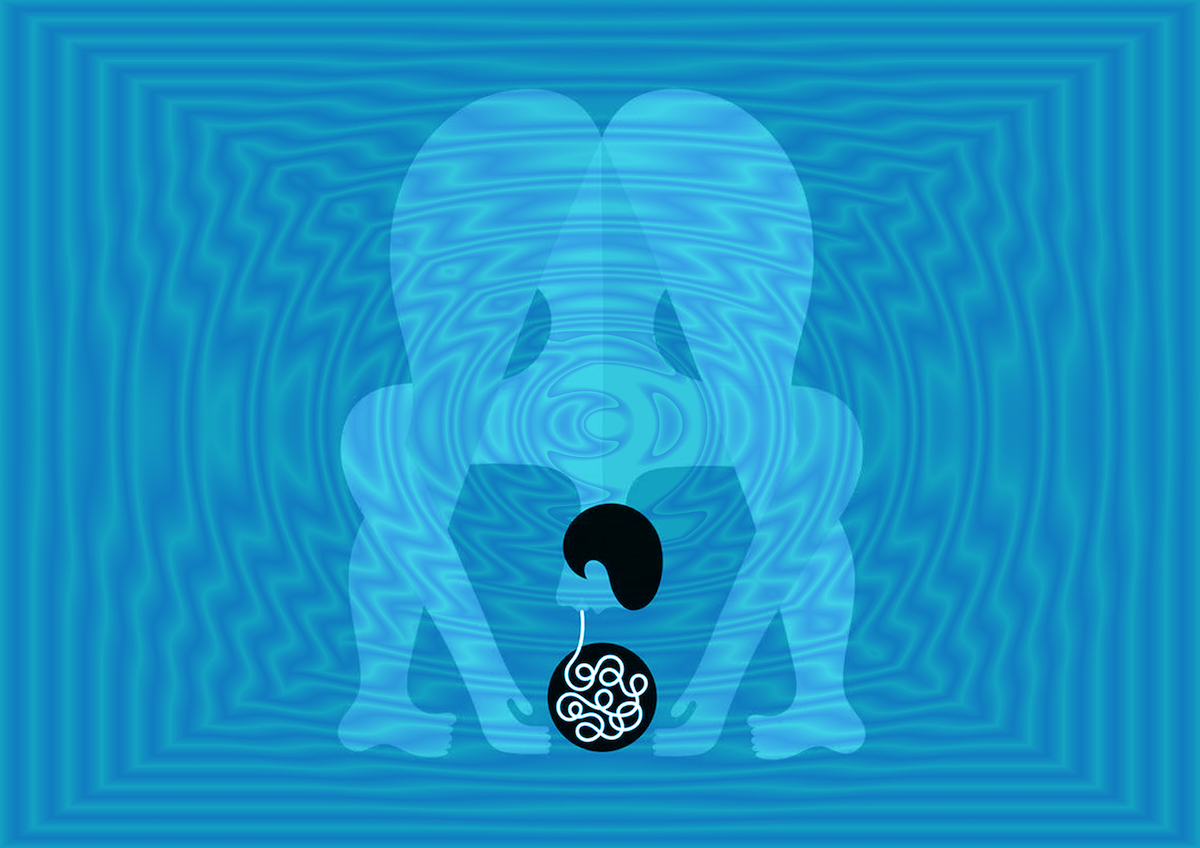But whilst I imagine the Hollywood-centric events leading up to 2018 felt like a chance…
Sexual Liberation Was How I Unlearned My Internalised Misogyny
A Personal Essay13 July 2021
As an adult, I see my sexuality as a large factor in who I am and who I have yet to become. I’ve given myself the liberty of going with the flow, and not stressing over who I like, what I want, or what sort of goals I might have for a relationship.
Though I definitely have preferences and aspirations, I know that those things won’t limit my future or come in the way of what I want as an individual. However, I would be absolutely lying if I said that my mind was always set up this way, because it was quite the opposite. Oddly enough, relationships and the goals surrounding them were constantly being brought up when I was younger, but sexuality or sex itself rarely ever made it into the discussion. Looking back on the way I grew up, in a Black, Islamic cult based in America, I never understood why the concept of sex was such a taboo topic.
After all, sex is the bedrock of our society, something that humans have engaged in for literally thousands of years. I didn’t understand how it was seen as something so separate from conversations about love and affection, as if sex was a forbidden fruit for almost any person. Furthermore, I noticed that demanding abstinence from every woman was a top priority, as women were taught that “purity” was an extension of their femininity, and would also make them better wives. However, these beliefs weren’t just limited to sex; as women were not only urged to maintain their virginity, but also to be pure when it came to their lifestyle. They shouldn’t curse, dress inappropriately or weigh too much. They should also remain refined and non-threatening towards men at all times.
I grew up in a pretty religious household, one where respectability politics and patriarchy reigned supreme, and biological essentialism (the belief that a biological gender has prescribed qualities or characteristics) as well as gender roles went unchallenged. That meant that men were always expected to be the breadwinners and it was necessary that they excluded masculinity and confidence. On the other hand, women were expected to bear children and be mothers. They were also to be seen and not heard, whether that was while cooking, cleaning, or taking care of children.

In spite of all this pressure for women to be the perfect homemakers, helpmeet (a typically female role involving dedication to a partner and focusing on making the relationship work), and wives, I saw none of these requirements pushed on men. Men, both mentally and physically, had the freedom to do whatever they so wanted to do with their bodies. Unlike the women, they didn’t have to bend over backwards to become the perfect husband. Women were the fabric of their marriages, and these men refused to learn how to sew. In other words, women often put in all of the work to be “marriage material” while men would not put in the equal amount of effort to keep the marriage together.
I was told that this was my future, and as a young girl, I embraced it until I rejected it as a teenager, never looking back. This was also a recurring theme that I noticed with the women in my family. It was somewhat of a generational curse; the women in my family for years had worked tooth and nail to appeal to their husbands, doing all that was asked of them and then some. Still, it didn’t prevent infidelity, nor did it stop unhappiness within their marriages, or divorce. Things became raw and personal—after watching my own mother go through absolute hell trying to be the ideal wife and still being treated poorly, I figured that liberation was the answer. It would not only be an alternative to a bitter future in a patriarchal world, but it would also make me a generational curse-breaker who refused to be a doormat for any man. If being “wife material” means being a rehabilitation center for a man who needs a therapist, consider me out.
I’m proud of how progressive I’ve become and that I’m sexually liberated in the sense that what I do with my body is completely up to my own choosing. At the same time, it took me a long time to unlearn this internalised misogyny, especially in relation to sex and my body. Deprogramming does not happen overnight. When I first became sexually active, I felt like a failure of a woman and overall as a human being. All of those years of “saving it for my wedding night” were now destroyed, and I felt as if I was no longer pure and innocent as I had once been. I became depressed and even cried every so often just thinking about how disgusting I had become. I was now a woman of scorn, and I was severely ashamed.

But over time, things changed. I made radical friends who were very open about their sexuality and saw it as a thing that they could identify with, something that was of comfort to them rather than something to hide. They dressed how they wanted, took photos that were seductive and steamy, and indulged in self-love to the fullest. Their sexuality was an extension of their humanity, and I wished that I had learned that sooner in my life. Throughout my whole life, I had been so serious and tense, and they showed me how to be playful and curious because it was in my very nature.
I even found God again, but this time within myself. I stopped looking to everyone and everything else for answers and began looking within so that I could figure out who I was and what I wanted for myself. I gave up on trying to fill other people’s expectations of what they wanted me to be. I freed myself from beliefs and ideals that no longer served me. Though sexuality isn’t my entire story, it did help me fill the rest of my story in. It taught me that I had freedoms and liberties that I hadn’t even previously considered. It encouraged me to be brave and be in charge of my own body in a world where autonomy and self-rule isn’t always granted to women.
Overall, what I learned was that the right person for you won’t be caught up in things that are so trivial. Your future partner or spouse isn’t going to be obsessed with small and insignificant things like how many people you’ve had sex with, how you dress, or if you’re an amazing cook. They’ll be more interested about who you are on the inside, and what values you hold dear. True love is based on things that are far deeper than what the naked eye can see. Perhaps if the people in my life had found that out and considered that, their stories would have happened a little differently. If I’m ever blessed to have a family one day, I want my children to know that they are free to find their own destinies and create their own path, especially if I have daughters. I don’t want them to base their future around finding a partner or lover.
Everyone should have the power to define themselves, and not feel pressured to change or lose who they are for somebody else.
_
Original artwork created exclusively for YEOJA by Nilufar Zarre. To keep up with Maryam on Instagram, click here. To visit Maryam’s website, click here. For more artist interviews, click here.








